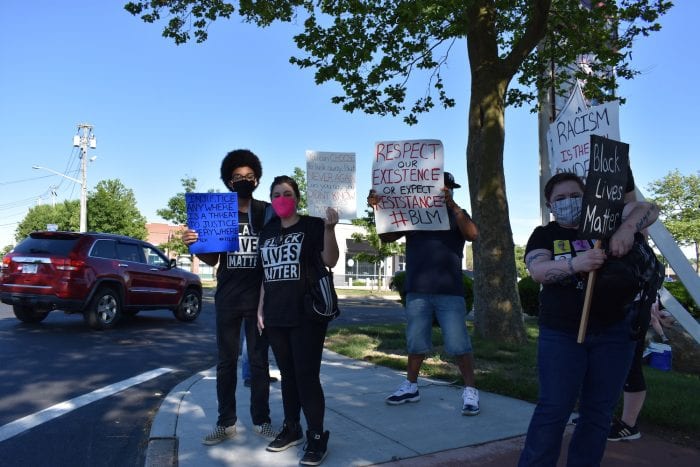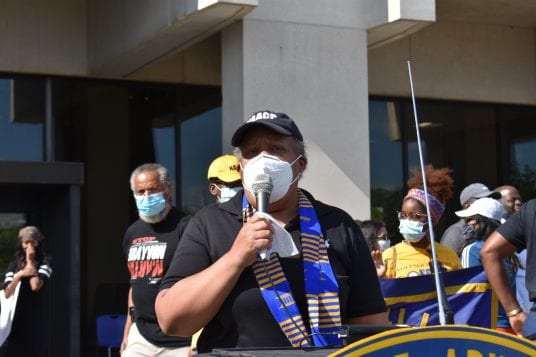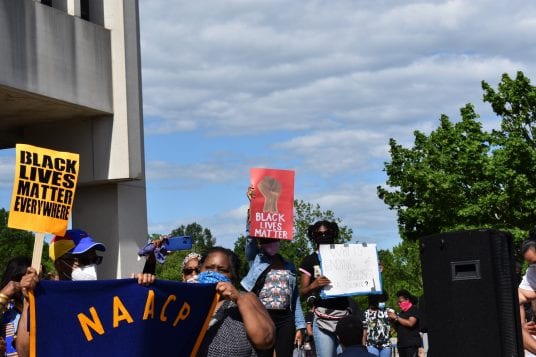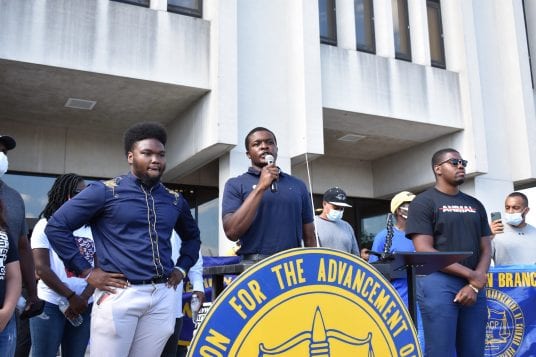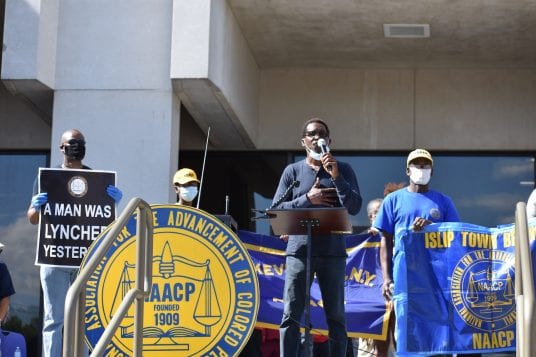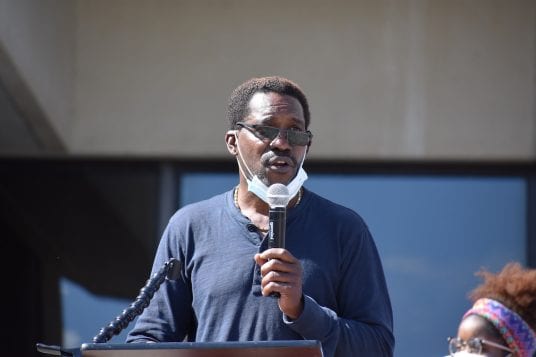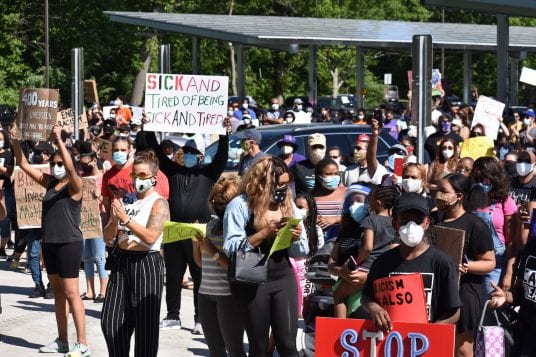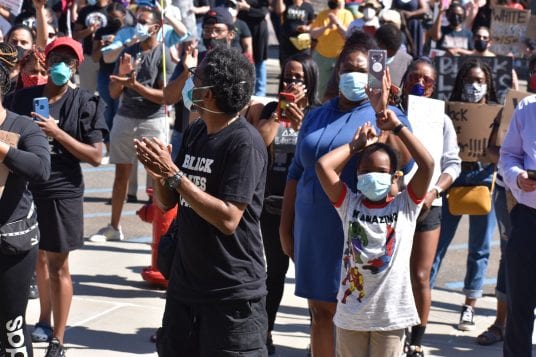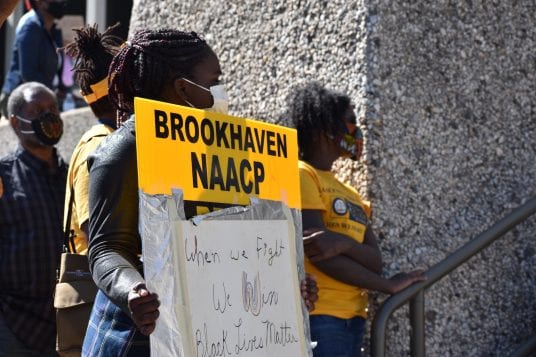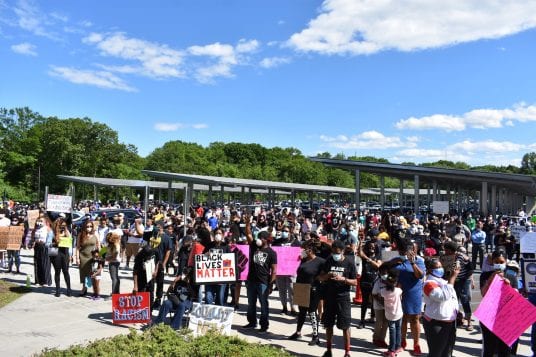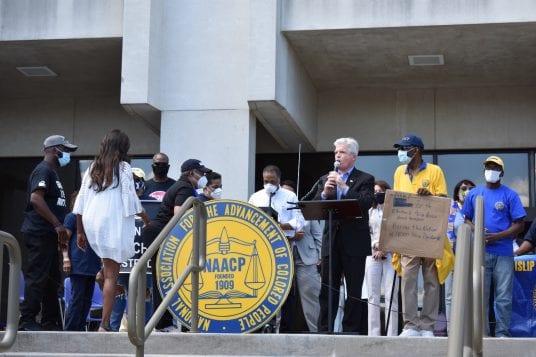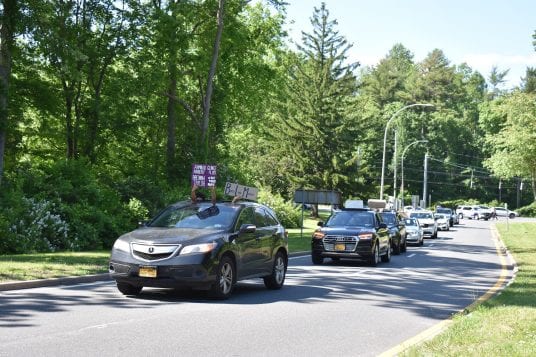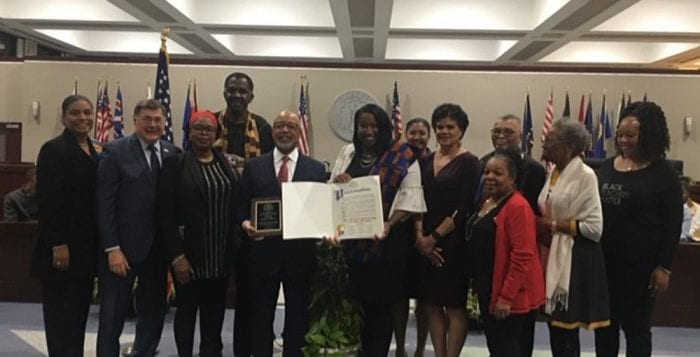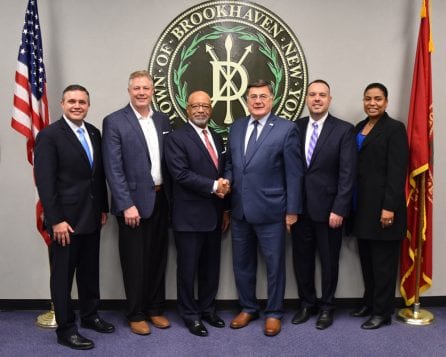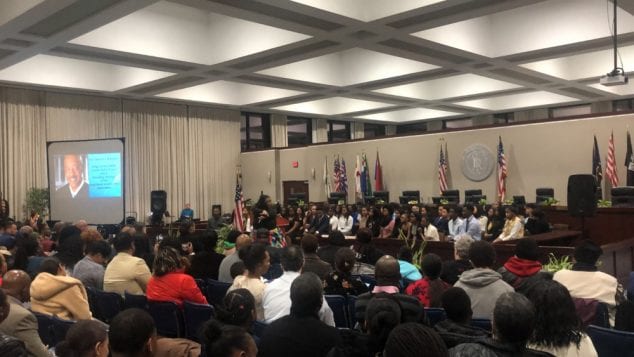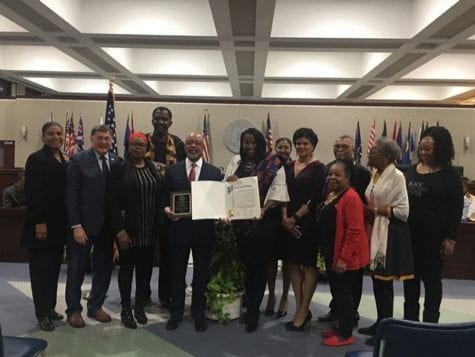In light of the George Floyd killing in Minneapolis and the subsequent protests locally and nationwide, Brookhaven Town Councilwoman Valerie Cartright (D-Port Jefferson Station) hosted a virtual forum June 11 to discuss race and policing on Long Island. Speakers included civil rights activists, law enforcement reform experts, NAACP and New York Civil Liberties Union leaders, also local attorneys.
Exploring the Blue Line: A Real Discussion on the Reality of Race, a more than two-hour discussion touched on a number of topics including needed policy changes, police reform on Long Island and what must continue to be done in order to make meaningful change.
Tracey Edwards, NAACP Long Island regional director, said systemic racism goes beyond the police system.
“We have entrenched policies and practices that have been in place to either harm a group as a whole or in part, intentionally or not,” she said. “This is the structure that treats race differently.”
“When we look at the police, we don’t see ourselves, we see others.”
— Jose Perez
It is a real problem that is not going away, she added.
“You have Larry Kudlow, who is the top economic person for the country who stood in front of a microphone and said we do not have any institutional or systemic issues,” she said. “If we first have to convince those that are in power that there is a problem — our issues are far broader than we thought.”
Despite New York State recently voting to institute several police reform policies, including the repeal of Civil Rights Law 50-a which prevented people from accessing service records of police, Edwards said there is more work to be done.
“We’re just getting started, this is just one piece of the issue,” said the NAACP Long Island regional director. “It is going to take a lot to fix a lot of the issues we face — it’s going to take a lot to fix a lot of the issues we face. On Long Island it runs deep.”
The panelists discussed the demographics of Long Island police officers.
Jose Perez, deputy general counsel for LatinoJustice PRLDEF, a New York-based national civil rights organization, said people of color including African Americans make up a small percentage of officers in both Nassau and Suffolk counties.
A 2016 study done by the NYCLU, dubbed “Behind the Badge,” found that people of color in Suffolk accounted for 13 percent of the police department. Out of the 136 individuals in upper ranks, only five were people of color. In Nassau, people of color make up 18 percent of the department, a total of 70 officers “in addition to the 326 white sworn personnel.” Of the 47 personnel who held positions other than detective, only three were people of color.
“When we look at the police, we don’t see ourselves, we see others,” Perez said. “That contributes to the overall policing impact on people of color.”
Frederick Brewington, a civil rights attorney from Hempstead, said the structure in departments makes it difficult for people of color to move up the ladder as well.
“Even though there may be a small percentage that make it into the ranks of a police department, those individuals are likely to never get to the ranks above sergeant,” he said. “Even those that get to that level or above, their longevity is usually not very long. Their culture is one that is not welcoming to individuals who may be people of color, particular African Americans.”
The disparities have trickled down to other areas of the criminal justice system.
Derrick Magwood and Larry Flowers, attorneys and members of the Amistad Long Island Black Bar Association, said there are very few attorneys of color in local courthouses.
“In Nassau, there are maybe five or six [attorneys] in criminal defense and two at the district attorney’s office,’’ Flowers said.
In Suffolk, there four of five attorneys but both Magwood and Flowers said they haven’t seen an attorney of color in the DA’s office. In district court, there are currently two African American judges but none in county court.
Edwards also brought up how these disparities are seen in public education on the Island.
“Long Island, out of 642 schools, 61 percent do not have a single black teacher,” she said. “That’s 212,000 children who will never interact with a black teacher from kindergarten to 12th grade. That’s not just an impact on black children, that’s an impact on all children.”
“The reason why police struggle with dealing with the systemic issues is because they don’t have the background education.”
— Frederick Brewington
Perez spoke on overt police bias, which “can be formed by what they have experienced, or what they have been taught.” He added, “They feel like they could get away with it based on their privilege, uniform and color of their skin. It is important we understand this reality and we have to address it head on.”
Brewington said it comes down to inadequate training.
“The reason why police struggle with dealing with the systemic issues is because they don’t have the background education,” he said.
The civil rights attorney said he believes they are asked to do a job they are not equipped to do.
“Six months of training at the [Police] Academy, when someone goes to be a doctor, psychologist or social worker, it takes them a minimum of four years,” Brewington said. “Then they are given a gun and told to go out and enforce — not help, but enforce.”
Other panelists agreed that six months at the academy is not enough and called for a minimum of two years.
In terms of additional police reform and policy changes, individuals mentioned increasing body-camera funding at the county, village and town levels. The need for some type of automatic penalty if an officer is found tampering with his or her body camera, yearly mental health evaluations for officers, an outside investigator to step in when it comes to cases of police brutality and misconduct, better cultural sensitivity and diversity training, and civilian review boards.
“We have to stay the course — we need to coalesce and act together,” Perez said. “This struggle will not be won individually. Every individual coming together becomes a force to be reckoned with.”

